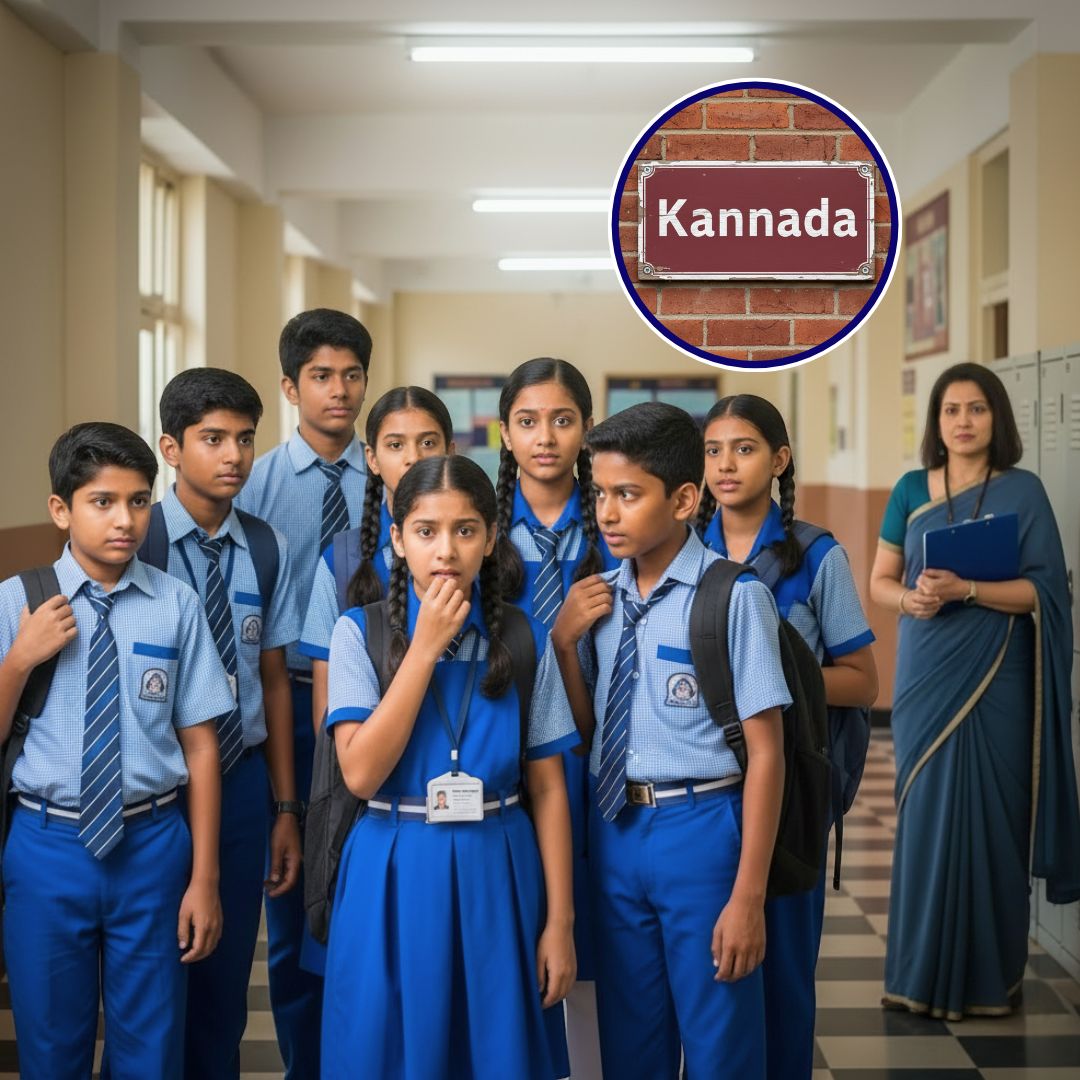A controversy has erupted at Sindhi High School on Kumarakrupa Road in Bengaluru after allegations emerged that students were fined for speaking Kannada within the school campus. Acting on instructions from the Kannada Development Authority (KDA), officials from the School Education Department inspected the school, where students reportedly admitted to facing penalties and writing undertakings for not adhering to the English-only language policy.
The school has defended the policy as essential to improve academic outcomes. KDA Chairman Purushottam Bilimale has demanded strict action, including cancellation of the school’s recognition, calling the policy anti-Kannada.
Allegations of Penalties for Kannada Use
Students at Sindhi High School allegedly faced fines and were reportedly compelled to sign undertakings if caught speaking Kannada within school premises. The principal is said to have admitted to enforcing the English-only language rule, which the school argues is necessary to enhance proficiency in an English-medium environment.
However, this enforcement has been criticised strongly by pro-Kannada organisations, who argue the policy amounts to linguistic discrimination and undermines the local language’s dignity. KDA Chairman Purushottam Bilimale has written to Education Minister Madhu Bangarappa urging cancellation of the school’s recognition, describing the policy as an attack on Kannada.
Background of Language Policy Controversy
Language use in English-medium schools has long been a sensitive issue in Karnataka. While English-only policies aim to improve language skills and academic success, critics say these measures sometimes come at the expense of regional language respect and students’ cultural identity.
Such allegations of penalising Kannada speakers at Sindhi High School are reminiscent of earlier incidents that sparked debates about the balance between English education and Kannada promotion. The KDA’s move to intervene reflects increasing scrutiny over educational institutions’ language policies in the state.
The Logical Indian’s Perspective
Education must cultivate respect for cultural diversity and linguistic plurality, enabling students to thrive in both their mother tongue and global languages. While English proficiency is important for modern opportunities, it should not come at the cost of marginalising indigenous languages or fostering exclusion.
Schools have the responsibility to foster kindness, empathy, and inclusiveness, allowing children to celebrate their linguistic heritage alongside academic achievement.












